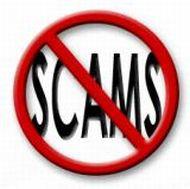Here are some hints than help you to identify scams:
iPhones at very low prices
iPhones have their market price. They sell directly via Apple. There is no wholesale. Therefore you will not find them cheaper. They are cheaper in some countries then in others. The price in China is usually higher due to sales taxes. If you like to see the selling price in China check this link: Apple China
Unreal discounts
You are offered unrealistic discounts, such as buy 2 get one free.
Free shipping on bulky items
Some scam sites have big items, such as 60″ TVs, Segways or motorcycles – still, they offer free courier shipping. Courier cost for such item will cost easily well over US$1000
Company age does not match websites
Some scams write 10 years in business – but the website is just 2 month old. It’s always good to have a detailed look about the website details and do a WHOIS search. One acellent website for a WHOIS search is Domaintools
Website has no Chinese language link
Everybody talking about the huge China market – then why the scammers don’t offer them in their own country?
No fixed line phone numbers
Very often the scams have no fixed line number. Only mobile numbers. Fixed line numbers will look like:
+86 755 ######## (Shenzhen)
+86 21 ######## (Shanghai)
Mobile phone will look like:
+86 1### ####### (all mobile numbers start with 1 in China)
Unsafe payment methods
Scam stores use payment methods were the buyer can not call the payment back. Usually Western Union or wire transfer, usually to a private bank account in China. Never to a company account in China. Some scams have company bank accounts in Hong Kong, but this is not safe. To register a company in Hong Kong is very cheap and already one good scam will cover that cost. They never use Paypal or Credit Cards.
No SSL (HTTPS)
Shopping sites usually have a SSL certificate, so the website URL will start with HTTPS://WWW.EXAMPLE.COM . Scams do not use SSL.
Dead external links
Some scam sites have external links to Facebook, Twitter, Pinteres etc – they are usually just point to the main website and they have no individual i.e. Facebook page.
Fake security seals
Some scams show fake security seals, that should usually have a link verify the security service – but for scams they are usually just images that are not linked. Usually it’s Symantec, McAfee, Paypal Verified, Verified by Visa, Mastercard SecureCode, BBB and others.

